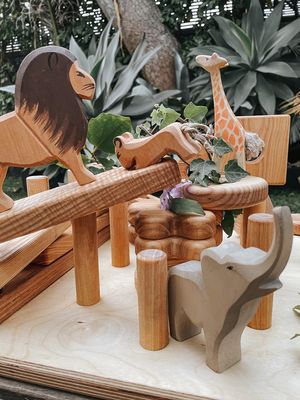"Are we forming children who are only capable of learning what is already known? Or should we try to develop creative and innovative minds, capable of discovery from the preschool age on, throughout life?" Jean Piaget
Childhood experiments of exploding playdough volcanoes, set with their favourite dinosaurs and herbs, invite children to immerse themselves in a world of awe and wonder. These experiences are discovery at its best, where curiosity thrives, and the high levels of engagement ensure greater learning outcomes.
Children are naturally curious, learning through their interests and investigations. The more curious a child is, the more observant they are, which encourages deeper thinking and problem-solving. When children ask questions like - what?, why?', what if?, and how? - they learn and discover.
As the world changes and evolves, there is no ability to predict what the future might look like. Research shows that the rate of emerging professions surpasses the growth of redundant roles, which means many of the jobs our children will be doing don't exist yet.
So how do we prepare our children for the future? We can equip and empower them with developmental skills that set them up as successful lifelong learners through discovery and play. Play is an essential part of a child's development, especially in the early years. Through play, children experiment with a range of new skills, including physical, cognitive and social-emotional development. Dr Karyn Purvis has discovered that it takes approximately 400 repetitions to create a new synapse in the brain, unless it is done in play, in which case, it takes between 10-20 repetitions.
Let's look at ways parents and educators can encourage development through play, inspire children to be and stay curious, lean into discovery, and approach new experiences and learning with the same awe and wonder as they grow.
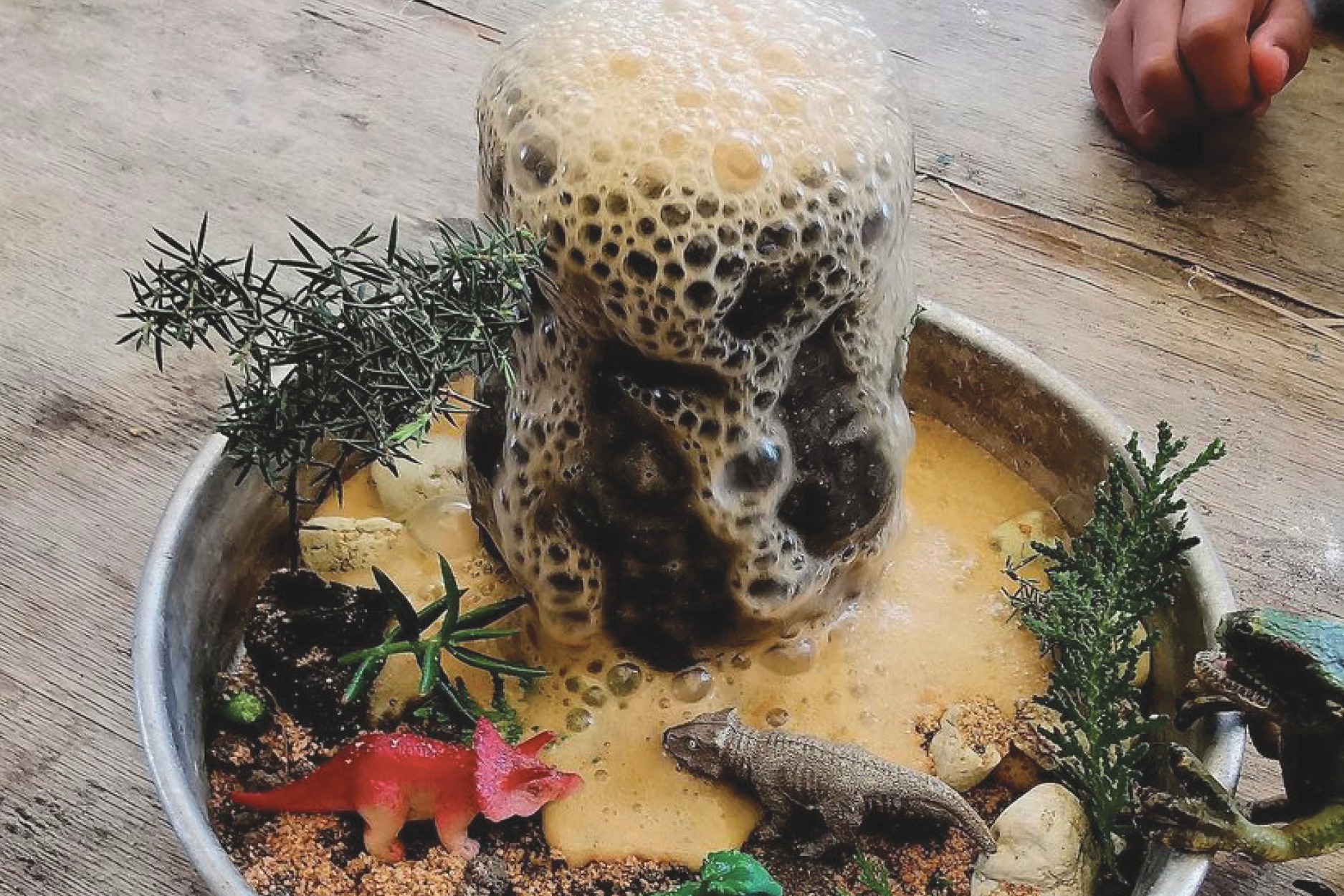
@_makemud_ creates an exploding playdough volcano using their EarthFizz, dinosaur and herbs.
What are the benefits of creating meaningful opportunities for discovery?
Physical development
Physical development is vital in a child's overall development, enabling them to pursue happy, healthy and active lives, incrementally developing fine and gross motor skills.
Fine motor: Fine motor control and precision help with hand-eye coordination, later linked to early literacy. By utilising small tools through discovery opportunities, children can develop proficiency, power, and confidence.
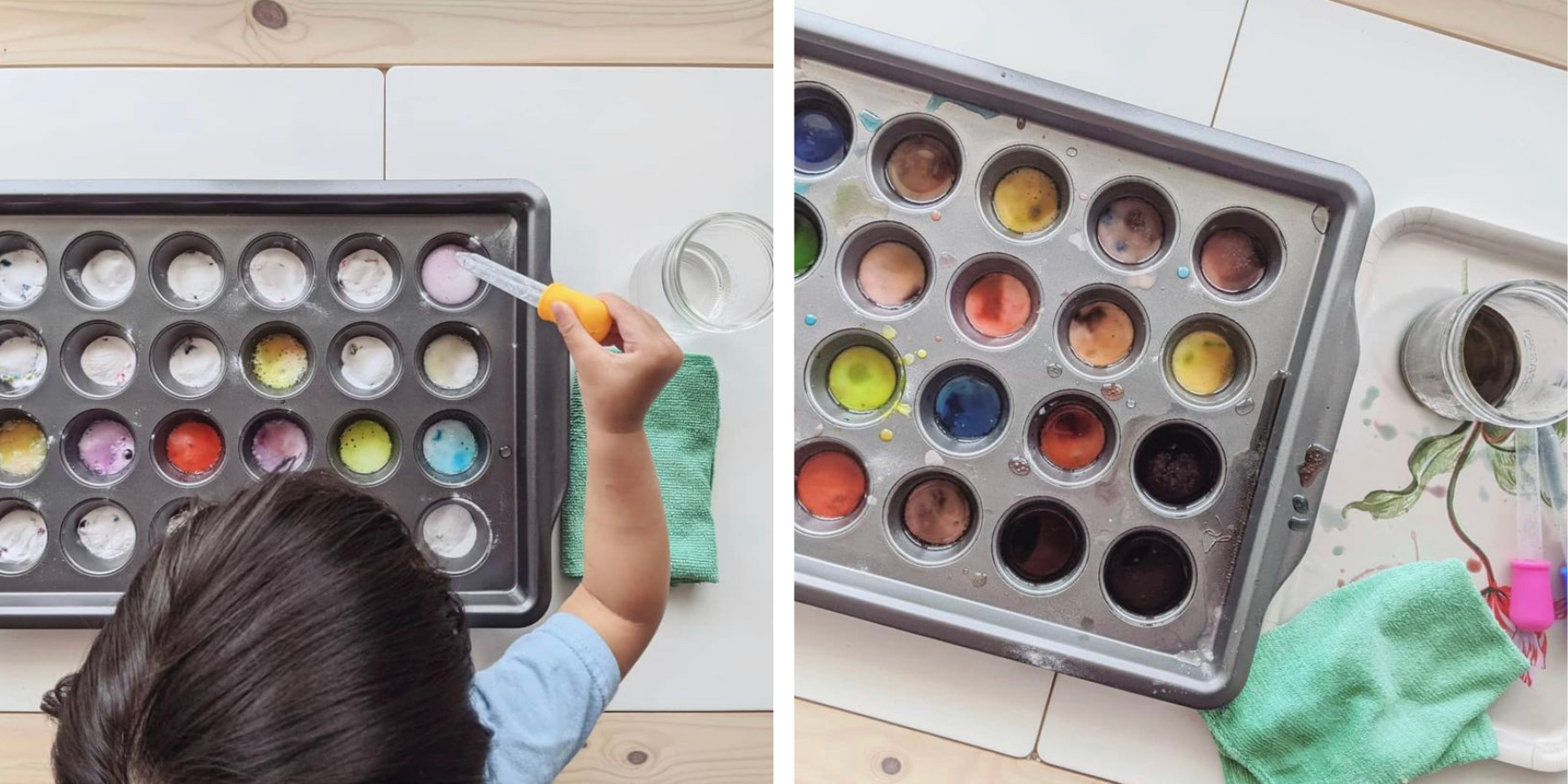
@reallifemontimama uses a game of colour reveal to identify and name colours. A discovery opportunity like this develops fine motor, hand-eye coordination, and learning about cause and effect through a fun and engaging science experiment.
Gross motor: Infants start out using their senses to explore. Through learning experiences and interactive opportunities, children develop core strength, stability, balance, spatial awareness, coordination, and agility. Gross motor skills provide the foundation for developing healthy bodies.
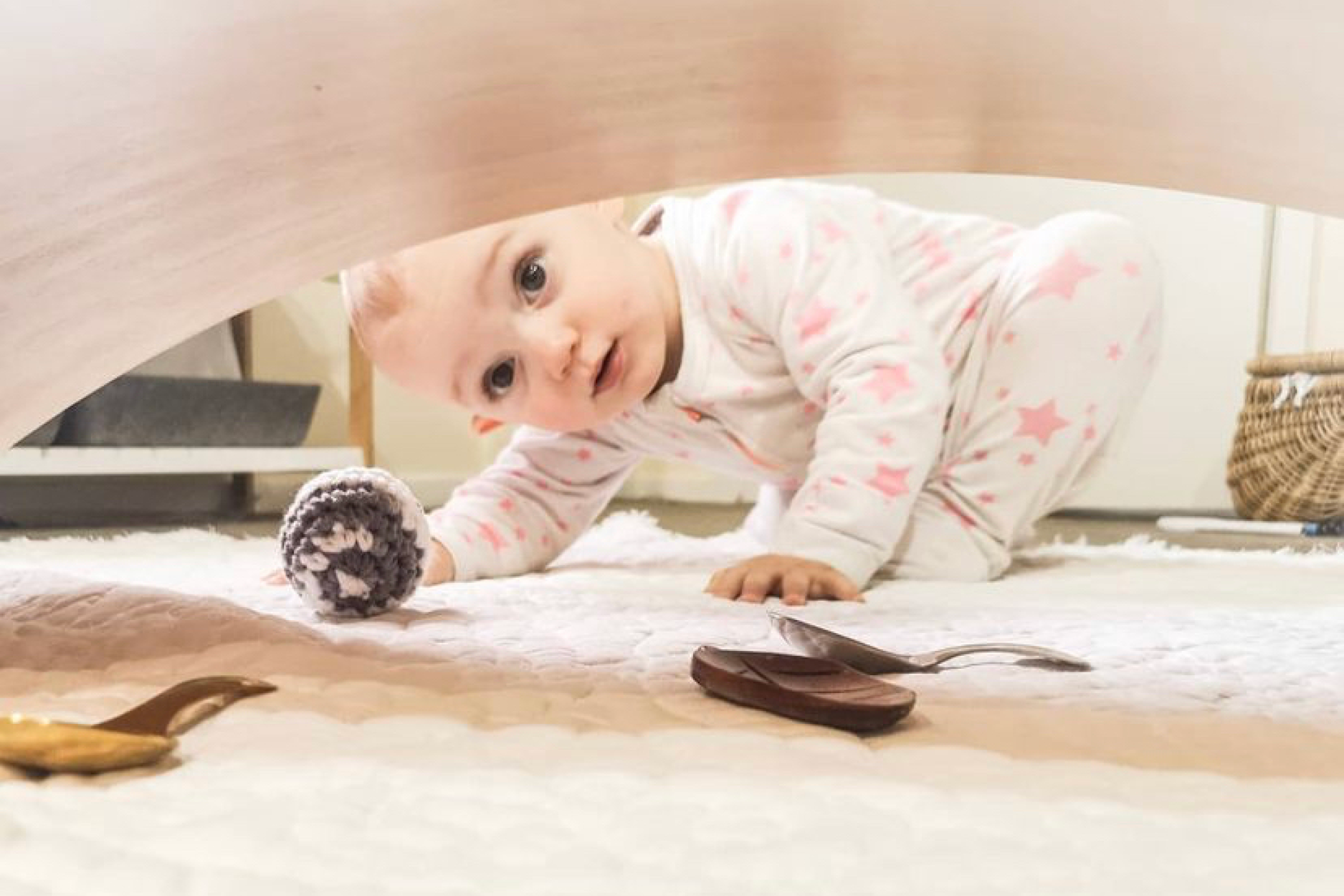
@come_rie_with_me uses her whole body to explore the trajectory of the objects as she rolls them underneath and over the kinderboard in anticipation of where they will end up.
Children investigate through play through repetition and having access to various resources, learning provocations, and invitations to play.
Literacy
Communication is at the heart of social interaction, helping children make sense of the world around them. Language and literacy are all about rules. They give children the framework for talking and understanding. Linking words to sounds and marks on the paper to letters – children's discovery into literacy begins here. Non-verbal language, including signs, symbols and gestures, are valuable communication tools. As are enjoying rhymes, poems, songs, and reading books together in intimate adult-child interactions.
Mathematics
Logical mathematics is part of our everyday lives, including measuring, sorting, building, noticing patterns, making comparisons, and describing the environment. Whether it's baking or timing a race, we encounter these ideas frequently throughout our day. As parents and educators, we can foster a positive attitude to mathematical concepts, providing the foundations in numbers to help children develop spatial reasoning skills across all areas of mathematics, exploring shape, space, and measurement.
Technology
Research indicates technology can enhance and improve children's learning when used thoughtfully and can encourage purposeful and exploratory play, collaboration, cooperation, discussion, creativity, problem-solving, risk-taking, and flexible thinking.
Tinkering, engineering, and making
Tinkering is the playful sibling of the more serious activity of engineering. Engineering starts with a problem to be solved, but tinkering starts with simpler questions like 'what can I do with this?', 'how does this work?', or 'how do these pieces go together?'. Tinkering and making are often experienced at the same time. When tinkering, children use their intuition to explore the physical properties of objects. When children are given opportunities to assemble and disassemble objects, they're figuring out how they work and creating. They are actively participating in unfolding and understanding the world they live in.
When faced with a problem, children ask questions, make plans, collaborate, test, and check their ideas - solving problems that arise to improve their ideas and make them better. These are all thought processes and actions that scientists and engineers use to create.
"Every time we teach a child something, we keep him from inventing it himself. On the other hand, that which we allow him to discover for himself will remain with him visible for the rest of his life". Jean Piaget
Understanding the world
Guiding children to make sense of their surrounding world helps them recognise their personal experiences. They learn by discovering and accepting differences in a culturally, socially, technologically, and ecologically diverse world. Offering a wealth of experiences and learning opportunities brings the world to our child's doorstep.
Children can learn about cause and effect by having conversations with adults and other children about what they observe. Learning from real-life experiences that engage their interests invites them to question, investigate, challenge, test, and gather evidence in what they find. They'll often raise queries about nature and search for answers.
Less is more: the best way to support children's discovery
How adults interact with children is fundamental to their world of discovery. Our role is to follow their lead, offering support and feedback to investigate further. It's best to use resources, experience, and opportunities that encourage independence. That way, children can ask questions, experiment, predict, propose, plan, and implement activities of their own choice.
We can indirectly support children by setting up early years activities that follow the child's interests, offering play-based experiences that intertwine scientific and mathematical concepts with technology and engineering to encourage their curiosity and spark an interest in these theories.
We can directly support children by fostering interactions, providing support, questioning, enquiring, being present in their play, and where appropriate, interact authentically and meaningfully.
Discovery in the learning environment
The ultimate goal is to help children think creatively, take risks, solve problems and gain new understanding. When creating a learning environment - inside or out - it needs to be set for children to discover, investigate, and problem-solve. Take a look at the spatial conditions of emotions, (Kinship, Thrill, Awe, Power, Intimacy), which help develop a physical environment that allows children to discover independently and to their full potential.
For discovery to thrive, a learning environment should include opportunities to Play and explore safely and independently:
- Learn actively to encourage concentration and resilience, develop the urge to solve problems, and celebrate achievements.
- Create and think critically to inspire and develop children's own ideas and strategies for meeting a challenge.
- Engage with natural resources because children who develop a lifelong love of nature grow into adults who protect it.
Adapted from - UK Statutory Framework for the Early Years Foundation Stage - Sept 2021
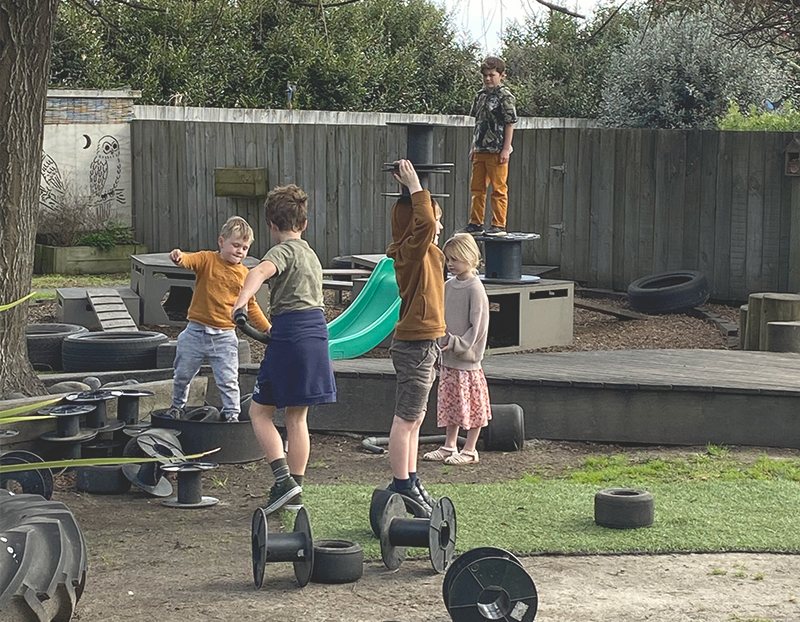
Children collaborate to make a circus, testing ideas of physics and learning through play.
Educators recognise play is essential for a child's development, building confidence, learning to explore, relating to others, setting personal goals, and actively solving problems. Every day, we see the benefits of stimulating children's interests, responding to each child's emerging needs, and guiding their development through warm, positive interactions coupled with secure routines for play and learning.
By bringing these elements to our children's day, we offer a world of discovery.
Visit our Discovery Enspires, Source Discovery Resources, and read thought-provoking articles and blogs in our Discover Section, where we can travel the road of enlightenment and discovery together.
![]()
References
 Angela Foley
Angela Foley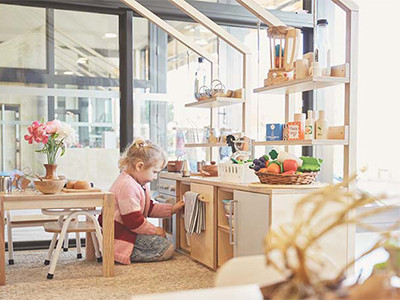
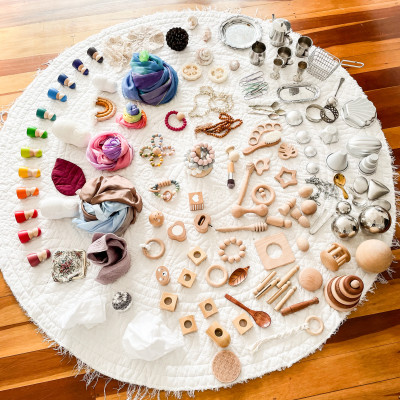
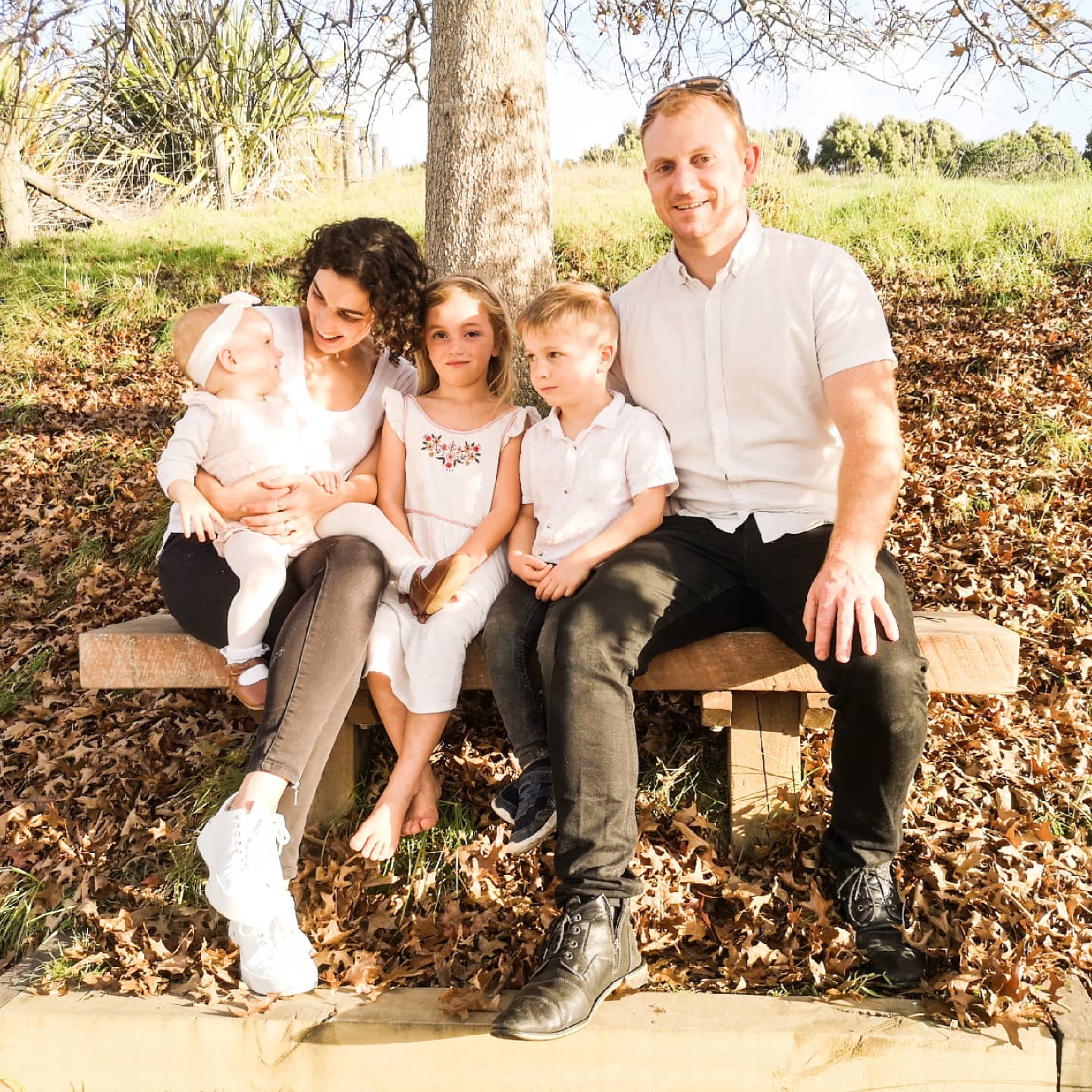 Lucie Kinzett
Lucie Kinzett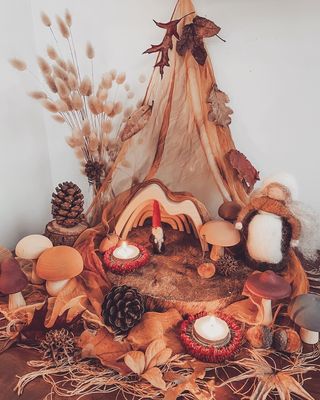
 Jade Leigh Kelly
Jade Leigh Kelly